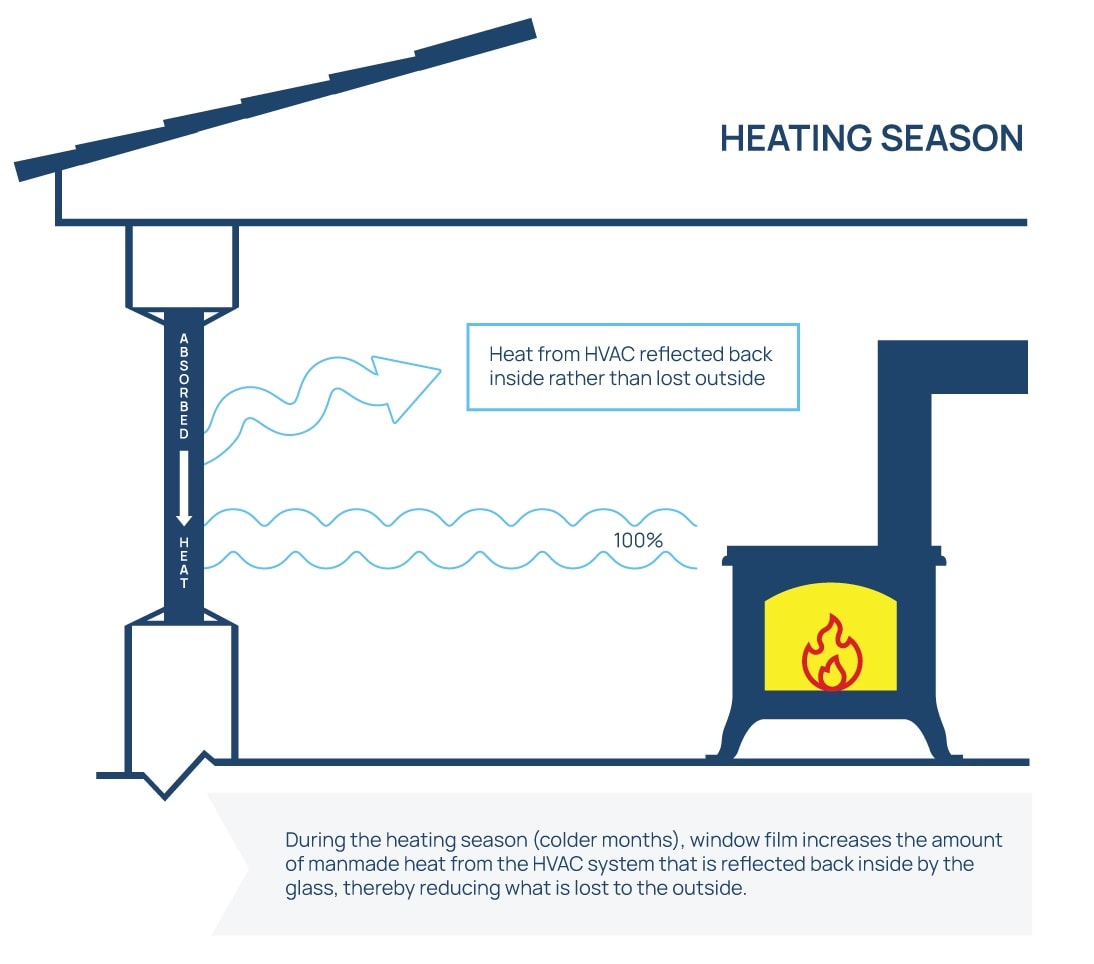Under certain circumstances, window film can cause heating costs to rise. Standard sun control films that impact only a window’s SHGC will reduce the winter sun’s solar heat gain and cause heating costs to rise for those buildings that do not cool 12 months out of the year.
A building often relies on the sun’s solar heat gain for heat during the winter. The installation of a tinted window film will reduce the amount of the sun’s visible light that enters a building, which will reduce the sun’s solar heat gain and ultimately cause heating costs to rise during the heating season (typically November-March in northern climates). However, this same film will cause air conditioning costs to decrease during the cooling season (typically April-October). Since the cost to cool is generally two to three times the cost to heat, and since the cooling season is generally longer than the heating season, window film will save money when examining energy costs on an annual basis versus a month-to-month basis.
But there is a solution that provides savings every month. 3M Company manufactures insulating window films like Thinsulate Climate Control 75 that reduce not only a window’s Solar Heat Gain Coefficient, but also its U-Value. Reducing a window’s U-Value means that the amount of man-made heat produced during the winter that is lost to the outside is greatly reduced. These insulating films provide savings year-round and should not cause an increase in heating costs.


If your home or building has a challenge staying cool in the summer, a standard sun control film can help, recognizing that utility consumption during the heating season may increase. But if your home or building has a challenge with staying warm in the winter and cool in the summer, consider a window film like Thinsulate Climate Control 75. You should see month-to-month savings on your utility bills from year-to-year, assuming temperature, occupancy, and usage is consistent.









